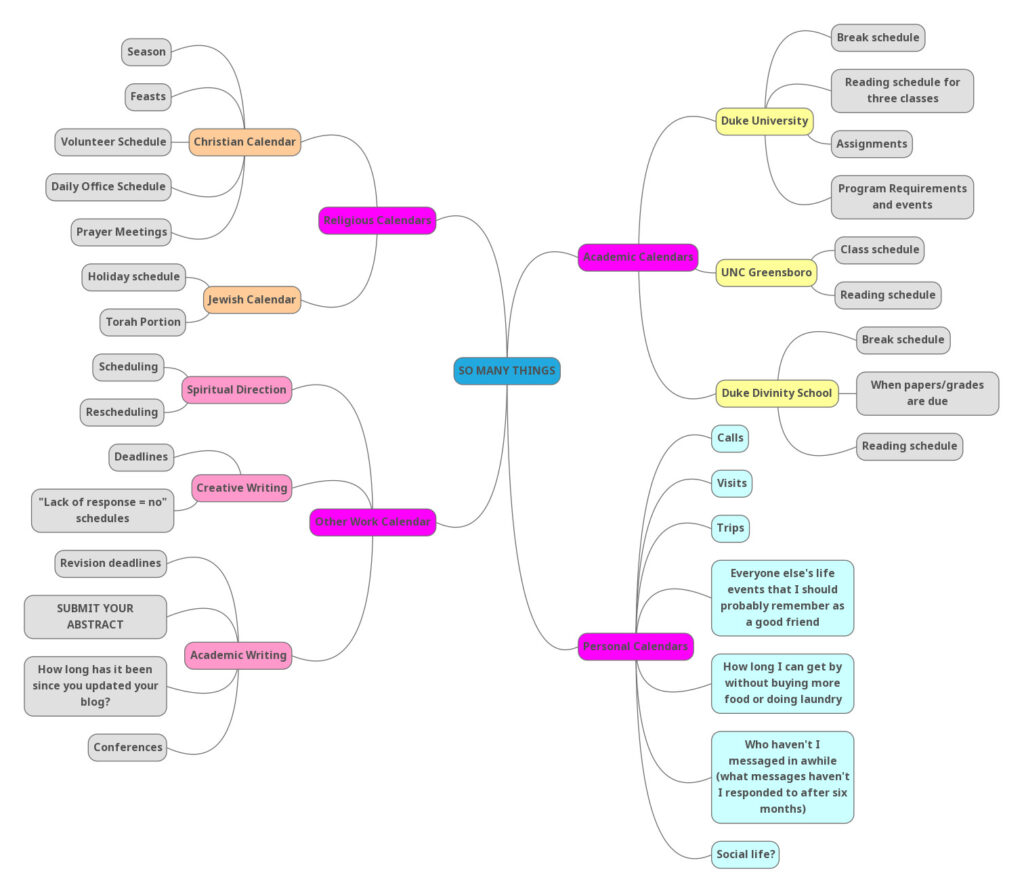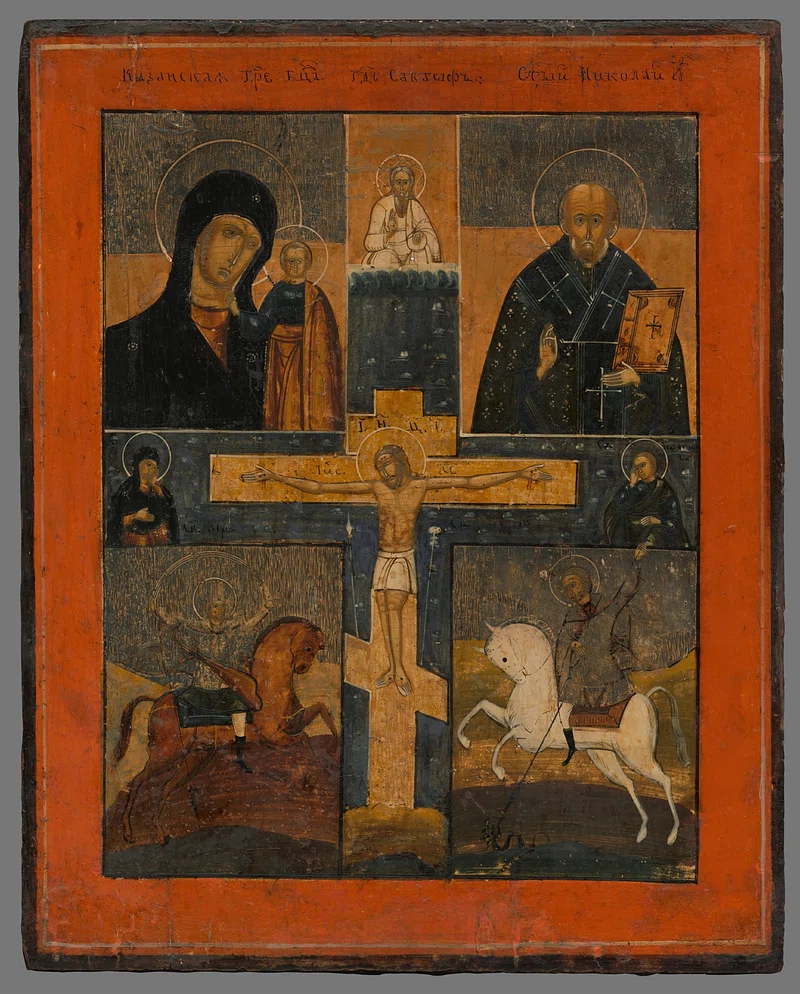Anyone who know me knows I love to schedule things. At the end of the week, I write out a schedule for the next week on a piece of paper, detailing my goals for each day. Then I schedule calls to friends, visits to the gym, fun activities. Sometimes I accomplish more than I imagined on a given day, sometimes less, but one thing is constant. I am an avid keeper of my paper calendar, lost without it. Changes to my schedule must be made on it or I will not remember. If I don’t have my planner with me for some ungodly reason, I text my partner the date and time, and he later reminds me to add it to my calendar.
In part, this is because there is so much to keep up with.

So at once, I’m a student at Duke University, a TA at Duke Divinity school (which as a different calendar) and taking a class at UNC Greensboro – so watching the university schedules, syllabi for five classes, making sure the readings and assignments are done right and on time and I am prepared to teach…
AND
It’s ordinary time, the 15th week after Pentecost in the Anglican world. We’re in Year A for the liturgy, so following the Exodus story and going through Matthew. But for the daily readings it’s year one and Proper 18 – we’re in Job, Acts, and John. Feast of the Birth of Mary just happened, John Chrysostom’s feast is this week followed by Holy Cross Day…and it’s almost Michael and All Angels – also I think I need to request a sub for hospitality ministry?

AND
I have a call at 9 but client X wants to move it to 9:15, edits for this paper are due, the submission deadline for this story contest is, I haven’t heard back from so-and-so and it’s been 12 weeks so I should submit elsewhere, SBL is in 2 months so I really need to write my papers for it…
AND
Rosh Hashanah is fast approaching and people are practicing their high-holiday melodies. Torah scrolls are getting heavy and hard to carry as the end of Deuteronomy draws near. Yom Kippur, Sukkot, Simchat Torah – it will be holiday after holiday…
AND
When will the milk in the fridge expire? Do I have enough fruit to make it through the week? When can you come over for dinner? When is x visiting? When do I need to fly to NJ? Have we really not spoken for two months, sorry are you free to talk on Sunday? Oh, how many more days of clean socks do I have? Do I have a social life? Can I have a social life?

In the midst of all this wild time keeping where I barely have my days under any semblance of control, it is easy for things that are important but not urgent to slip through the cracks.
The thing is while I am busy, we all are. Who among us ever feels that there is enough time? Who among us doesn’t feel the calendar getting the best of us, that we blink and months have passed?
This is where God comes in
This post is inspired by a sermon I heard this week by the vicar of St. Joseph’s, Lauren Winner. Right now, the lectionary is in Exodus, and we read Exodus 12:1-14, which begins: “1The Lord said to Moses and Aaron in the land of Egypt: 2This month shall mark for you the beginning of months; it shall be the first month of the year for you. 3Tell the whole congregation of Israel that on the tenth of this month they are to take a lamb for each family, a lamb for each household… 6You shall keep it until the fourteenth day of this month; then the whole assembled congregation of Israel shall slaughter it at twilight.7…” Lauren noted how strange it is that before the Passover even has happened, God is commanding the Israelites about the commemoration of the event. She dwelt on the significance of calendars in the Bible – and how rife the Old Testament is with commands about how the daily/weekly/monthly/yearly rhythms of our lives.
The rhythms of our lives are important to God.
Command after command shows us that God really cares about the community calendar.
Our Calendars Orient Our Lives
We live busy, hectic lives. I don’t know anyone (whose not retired) who isn’t ridiculously busy. But Lauren’s observation is extremely valuable: our calendars orient our lives, they say something about how we structure our time and what our time revolves around.
Now there are some places in the world where religious or traditional calendars are used along side the de-facto international Gregorian Calendar, and some countries (namely Ethiopia, Nepal, Iran and Afghanistan) said NO to the Gregorian Calendar wholesale. Many countries have civil holidays that are historically religious. In Slovakia, for example, three-kings, Easter Monday, Good Friday, and Cyril and Methodius are all national holidays along with “day of the Slovak national uprising”, constitution day, foundation day, etc.
But, whether we are in a historically Christian country or not, it takes effort to structure not just the busy days but the busy years around our faith.
But it is worth the intention.
As Lauren so aptly explained in her sermon, we are practicing for heaven when our lives will be structured around worshipping God.
Leave a Reply